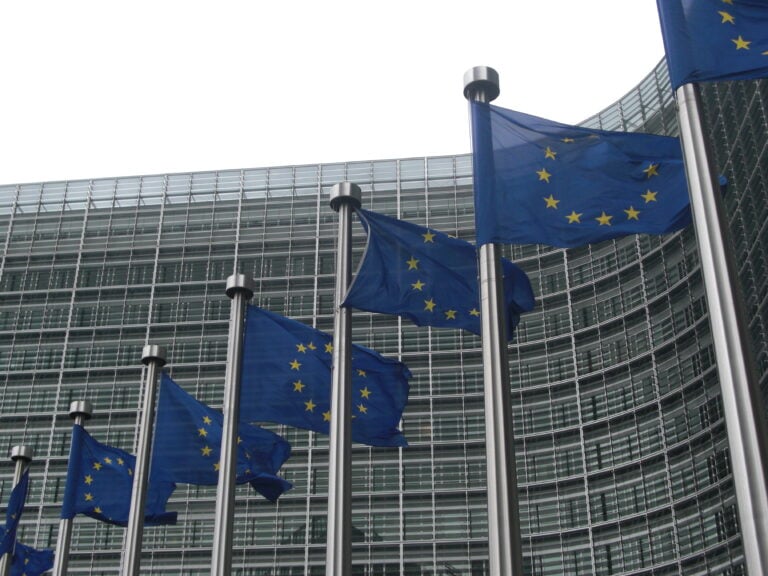
The European Commission has passed legislation intended to support the bloc’s clean energy manufacturing industry.
The acts passed late last week are additions to the Net Zero Industry Act (NZIA) and “clarify which manufacturing projects can benefit from specific provisions in the Act, such as on permitting, strategic project status and on non-price criteria,” the Commission said in a statement.
Try Premium for just $1
- Full premium access for the first month at only $1
- Converts to an annual rate after 30 days unless cancelled
- Cancel anytime during the trial period
Premium Benefits
- Expert industry analysis and interviews
- Digital access to PV Tech Power journal
- Exclusive event discounts
Or get the full Premium subscription right away
Or continue reading this article for free
The Commission has clarified the specific clean energy technology components that will fall under the NZIA requirements, which include a broad list of solar PV supply chain components from polysilicon and silicon ingots to junction boxes, backsheets and inverters.
It also adopted rules for so-called “non-price criteria” in public procurement auctions, which will compel member state governments to consider “responsible business conduct, cybersecurity, and sustainability and resilience contribution”, as well as price, in public renewables auctions. The Commission said that 30% of yearly auction volumes must meet these criteria from 30 December, 2025 – amounting to around 6GW of energy capacity per country each year.
Measures similar to these have already been included in the Clean Industrial Deal (CID), but had not previously been made explicit under the NZIA. The European Solar Manufacturing Council (ESMC) called for member states’ “resilience” criteria to be included in the NZIA earlier this year.
In response to the new acts, Christoph Podewils, secretary general of the ESMC, said: “This is a major step forward in our efforts to reshore solar manufacturing capacity to Europe. We now look forward to seeing these commitments translated into concrete measures through the Net-Zero Industry Act and the revised Public Procurement Framework.”
European trade body SolarPower Europe expressed similar support. Dries Acke, deputy CEO, said: “This Act marks an important step in the EU’s strive to diversify and reshore solar manufacturing to Europe. It creates a dedicated market for EU solar products, giving much-needed relief to European solar manufacturing.
“We look forward to seeing the first auctions under the Act in 2026 and encourage Member States to effectively implement the resilience principles, including premiums for made-in-Europe solar panels. With solar manufacturers in peril, there is no time to lose.”
The Commission also specifies that EU countries must not rely on any one country for more than 50% of renewable energy component supply, in addition to meeting the 30% “resilience” threshold for non-price criteria. In one section of this act, the Commission states that some technologies may have a level of dependency on an external country “so high that a strict application of the resilience criterion would endanger the security of supply of that component.”
Currently, Chinese producers account for over 80% of the world’s crystalline silicon solar manufacturing capacity, and the top four companies shipped over 65GW of modules between them in the first 3 months of 2025 alone. This provision may, then, apply to solar PV capacity auctions.
In a more explicit move, the Commission implied that the focus of its resilience drive will be on solar module assembly, rather than upstream components, specifically solar cells.
Article 10 of the act states that “the assembly of PV cells…or equivalent components into PV modules would not change the origin of the module. For this reason, it is appropriate to refer to the assembly of the solar photovoltaic system and of the PV module, rather than to their origin, as a reference for the contribution to resilience of those specific manufacturing steps.”
In its statement on the announcement, SolarPower Europe (which includes major Chinese solar manufacturers among its membership) praised the “positive, measured, approach” taken by the Commission. It continued: “This also means the rest of the auction market should remain unaffected, maintaining the necessary pace of solar deployment.”






